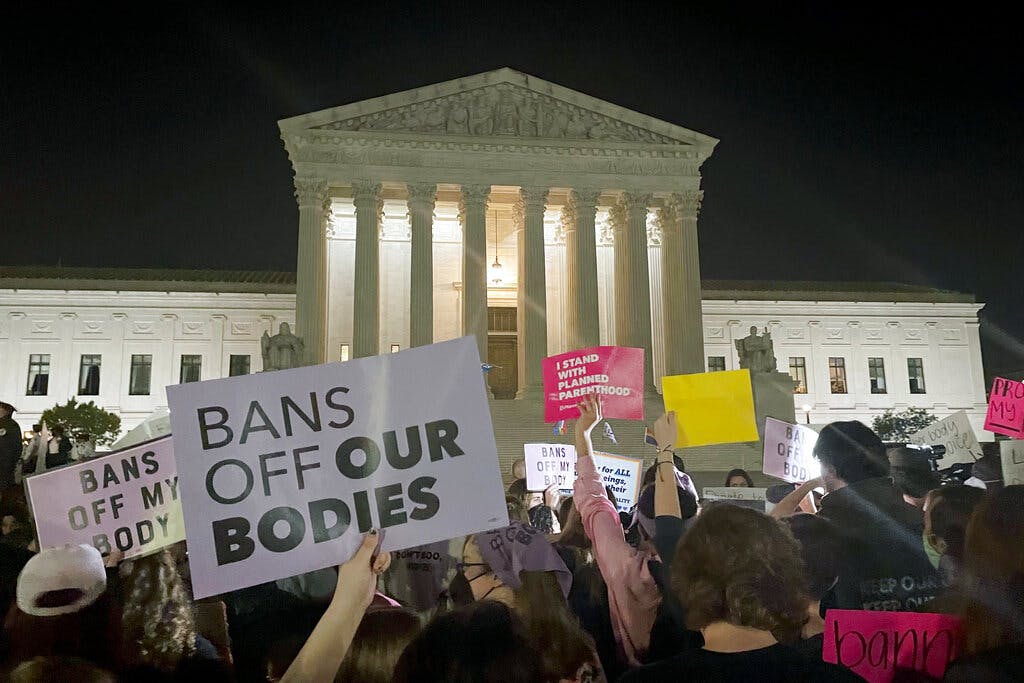Libertarian Land: Federalism, States’ Rights, and the 14th Amendment
The Libertarian approach to federalism implies no federal prohibition or legal restrictions on drugs, alcohol, prostitution, gambling, or other so-called vices.

What level of government — federal or state — should set policy regarding marijuana, guns, marriage, abortion, education, and more?
Current practice in the United States is a hodgepodge. Both federal and state governments outlaw marijuana, heroin, LSD, and other drugs, but 19 states have legalized marijuana despite federal prohibition.
Under Obergefell v. Hodges, all states must recognize same-sex marriages from other states and supply such marriages themselves, a reversal of the 1996 Defense of Marriage Act.
Abortion policy was state-determined until 1973, then dictated by federal policy under Roe v. Wade, but now again the province of individual states. Criminal justice policies toward violence and theft have always have been left to states.
This inconsistency reflects changes in the Constitution, especially the addition of the 14th Amendment in 1868, and changing interpretations thereof. The inconsistency also occurs because advocates on the left and right wish to impose their preferred policy everywhere, yet appeal to “states’ rights” when convenient.
Liberals, for example, are happy defending states’ rights to legalize marijuana, while advocating federal control of abortion; conservatives argue the reverse.
Libertarian Land takes a different approach: States have free rein to choose virtually all their own policies, while the federal government never intervenes on its own and imposes no restrictions on state policies. This federalism has dramatic implications for the configuration of policies.
Federal gun laws are entirely absent in Libertarian Land. Many states impose mild regulation, such as a minimum purchase age, while others regulate to the point of outright bans. State boundaries are porous, however, so most who wish to own a gun find it easy to do so.
No federal law or Supreme Court ruling addresses abortion; each state sets its own policy as part of defining murder. Abortion is partly or entirely legal in many states but heavily restricted or banned in others.
Many women cross state or international lines to obtain abortions, or they use licit or illicit RU-486 (the “abortion pill”). No federal law restricts access to RU-486, or the morning-after pill, or any form of contraception (Libertarian Land has no FDA).
The federal government has no laws that affect marriage. States make their own choices about whether to supply marriage and whether to offer to both same- and opposite-sex couples. Same-sex marriage is effectively legal in all states, however, because Libertarian Land operates under a version of the Full Faith and Credit Clause.
The federalism approach implies no federal prohibition or legal restrictions on drugs, alcohol, prostitution, gambling, or other so-called vices.
States are free to adopt such policies, though these have minimal impact (since state borders are porous). Because state prohibitions have minimal impact, most states legalize so they can tax these goods.
Education in Libertarian Land is entirely state-defined and -operated. Many states (or cities and towns) operate public school systems not unlike current American practice, but others offer flexibility for home schooling, charter schools, and vouchers.
Federal policies like No Child Left Behind, support for the Common Core, and funding for any kind of sex education do not exist.
The federal government neither mandates nor restricts affirmative action in college admissions, whether for public or private universities. State institutions are free to practice affirmative action, or not.
This “extreme” federalist approach to policy will strike many as misguided. For those confident that a particular policy is best, the temptation to impose it federally is strong.
Yet one-size-fits-all has a major cost: for many policies, people hold strongly opposing views, and the “right” policy is far from obvious. Having the federal government impose one approach generates polarization and animosity because it tells a significant fraction of the country, “Your views are evil.”
Under the Libertarian Land approach, each state chooses its own policies, which allows for variety and experimentation; more importantly, it avoids the coercion implicit in a federal approach. Everyone can try to influence policy in their own state, or move.
A key aspect of federalism is that its policy implications align imperfectly with both liberal and conservative views. Thus both perspectives will be unhappy, but with more freedom to choose their preferred combination of policies.
That is the best way to accommodate the inevitable differences in views on these and other difficult issues.

